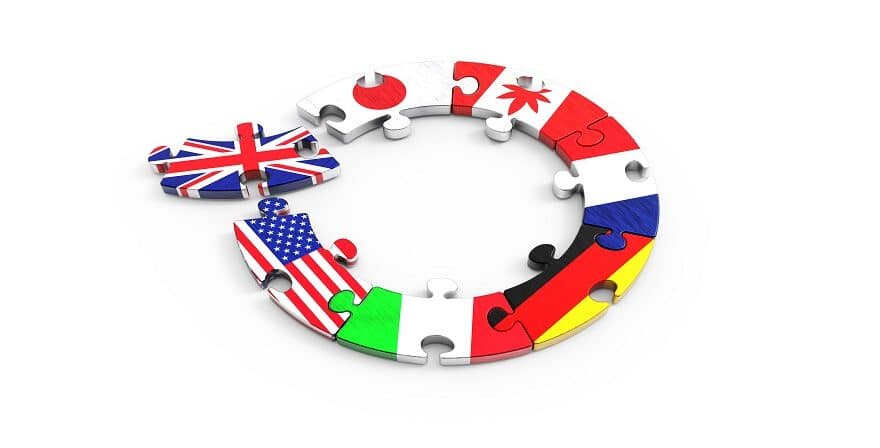
UK BREXIT Planning Checklist
This checklist is designed for 2020 Members to review for sense, edit, add their logo and contact details and distribute to their clients if they so wish.
This checklist should not be relied upon as comprehensive guidance but as a reminder of some of the key planning questions and resources for businesses to help plan for trading with the EU post Brexit.
The checklist is designed to point clients in the direction of the Government support sites because as accountants, tax and payroll people most of us do not have the time to become Brexit specialists in the short time before transition ends.
Larger businesses will probably have made their plans and if they trade outside the UK be familiar with the administration required. The checklist is aimed at SME clients and prospects who will be new to the forms.
Disclaimer
No responsibility for loss occasioned to any person acting or refraining from action as a result of the material in this document can be accepted by the authors or 2020 Innovation Training Limited.
20 POINT UK BREXIT PLANNING CHECKLIST
Introduction
There is still some uncertainty as to whether the UK or EU will agree a tariff free trade agreement. Either way UK business will face additional documentation for importing and exporting goods to the EU from 1 January 2021.
Planning for the new requirements seems sensible right now. There are also other business matters to consider such as data protection, intellectual property and replacing existing agreements with EU suppliers and customers.
Use this 20-point checklist to review your Brexit preparedness and the Government information to prepare actions for 1 January 2021.
The Government has published guidance: “The transition period ends in December” see: https://www.gov.uk/transition
This outlines actions to take now if you are:
- importing goods into the UK
- exporting goods from the UK
- travelling to the EU
- living and working in the EU
- staying in the UK if you’re an EU citizen
Here are some of the areas you should consider, particularly if you import or export goods to the EU and haven’t had the need to complete the various forms before:
- If you move goods to or from the EU register (unless you already have) for an Economic Operator Registration and Identification (EORI) number – https://www.gov.uk/eori
- Consider an agent to help with completing import/export forms – export.org.uk or DIY the forms (see below).
- If you export goods see the step by step guide here: https://www.gov.uk/prepare-to-export-from-great-britain-from-january-2021
- Export rules are specific by sector so review “The transition period ends in December” Government website. There you can get a personalised list of actions and can subscribe for email updates: https://www.gov.uk/transition
- The VAT reporting rules for EU sales can be found here: https://www.gov.uk/guidance/vat-how-to-report-your-eu-sales
- If you import goods then see the guidance “Starting to import”: https://www.gov.uk/starting-to-import/moving-goods-from-eu-countries
- There is a step by step guide on importing here: https://www.gov.uk/prepare-to-import-to-great-britain-from-january-2021
- Guidance on paying VAT on imports can be found here: https://www.gov.uk/guidance/vat-imports-acquisitions-and-purchases-from-abroad
- Review HMRC YouTube videos on international trade here: https://www.gov.uk/guidance/help-and-support-for-international-trade
- You may choose to register for “Authorised Economic Operator (AEO) status which enables “Trusted” businesses simplified customs procedures. Application does take time and is complex. See: https://www.gov.uk/guidance/authorised-economic-operator-certification
- In the event of the EU and UK not agreeing a free trade agreement, from 1 January 2021 all exports and imports to the EU will be subject to tariffs. You will need to identify where “inputs” come from and which categories of product they fall into so you can work out the tariffs that will apply. The UK Government have published trade tariffs duty and VAT rates by commodity: https://www.gov.uk/trade-tariff
- If you currently have business agreements with EU companies these may need to be redrafted to cover off areas such as customs arrangements, import duties, how VAT is accounted for, definitions such as “Territory”, dispute resolution and unanticipated administration as a result of Brexit. Consult your lawyer for advice to avoid any potential issues sooner rather than later.
- Review all EU employees currently working in your business and ascertain whether they are applying for “Settled status” by 31 December 2020. See: Your UK employees working in the EU may need to apply for similar status. https://www.gov.uk/government/publications/eu-settlement-scheme-employer-toolkit
- If your business has a “.EU” domain name you should check the eligibility to hold such a domain here: https://www.gov.uk/government/publications/guidance-on-eu-top-level-domain-name-registrations-in-the-event-of-a-no-deal-eu-exit/guidance-on-eu-top-level-domain-name-registrations-in-the-event-of-a-no-deal-eu-exit
- If you are involved in eCommerce then read the Governments EU guidance: https://www.gov.uk/government/publications/ecommerce-eu-exit-guidance
- Data Protection – you may need to comply with new license requirements and changes in regulation. The Information Commissioner’s office (ICO) will update its guidance once the outcome of the negotiations is known. See: https://ico.org.uk/for-organisations/data-protection-at-the-end-of-the-transition-period/
- Copyrights – A substantial part of UK copyright law is derived from the EU copyright framework. Because of this, there are references in UK law to the EU, the EEA, and member states. Some of these references occur in the UK’s implementation of EU cross-border copyright arrangements. These arrangements apply only within the EU and EEA and provide reciprocal protections and benefits between member states. If there is no future reciprocal UK EU deal contact your lawyer to discuss. See: https://www.gov.uk/guidance/changes-to-copyright-law-after-the-transition-period
- For Intellectual Property see: https://www.gov.uk/government/news/intellectual-property-and-the-transition-period
- For Trademarks see: https://www.gov.uk/guidance/eu-trademark-protection-and-comparable-uk-trademarks
- Consider forming a company in the EU. Talk to us about how we can help you with our colleagues in Ireland.
For more information, Book a Free Consultation
Need Accountancy Support?
For information on bespoke training, or if you have any other questions for Makesworth Accountant, please fill in your details below
















 151
151